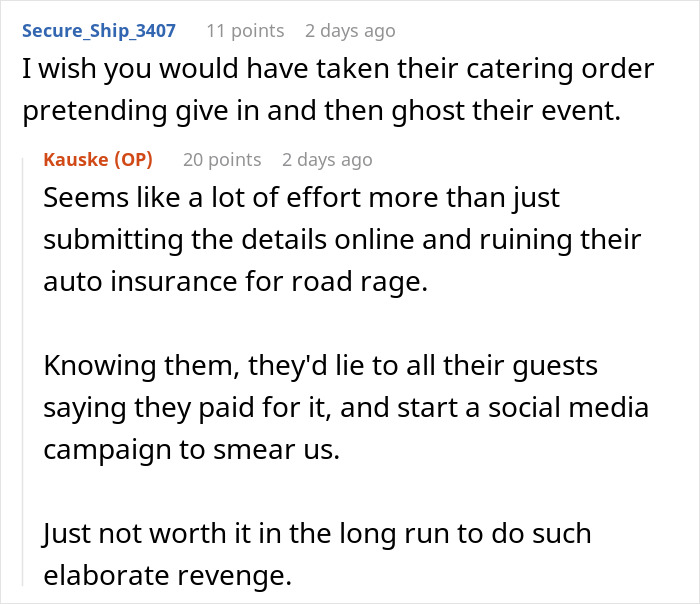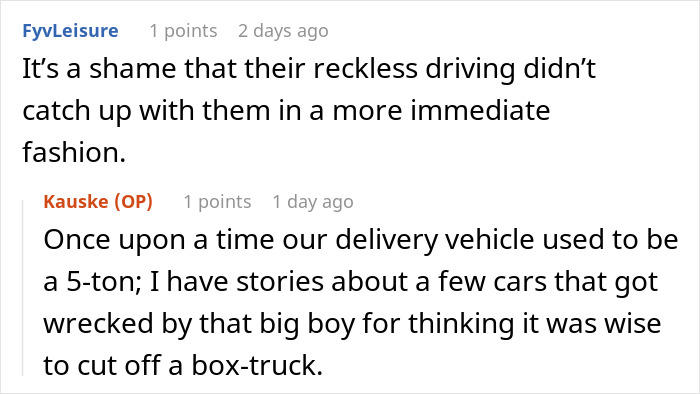Companies duping their customers has almost become routine, to the point where it often goes unnoticed. Limited-time offers, greenwashing, and false discounting are all used to lure in as many consumers as possible. However, the customers aren’t always saints either, fabricating lies for their benefit, which sometimes make the employees’ job impossible.
Luckily, this worker had a sharp eye when an entitled couple tried deceiving them to score free catering from their business. The story they attempted to sell them, unfortunately, wasn’t convincing enough, and the employee pulled up camera footage, which caught them completely red-handed.
Scroll down to find the full story and conversation with associate professor of marketing Deidre Popovich, PhD, consumer psychology researcher and chief behavioral officer at Clicksuasion Labs, Dr. Michael Barbera, and psychotherapist turned customer researcher Hannah Shamji, who kindly agreed to share a few insights on why customers might be dishonest.
Not all customers that customer service employees come across are truthful

Image credits: master1305 / envato (not the actual photo)
These even spinned a crazy story about an accident with a delivery driver just to get free catering for their party


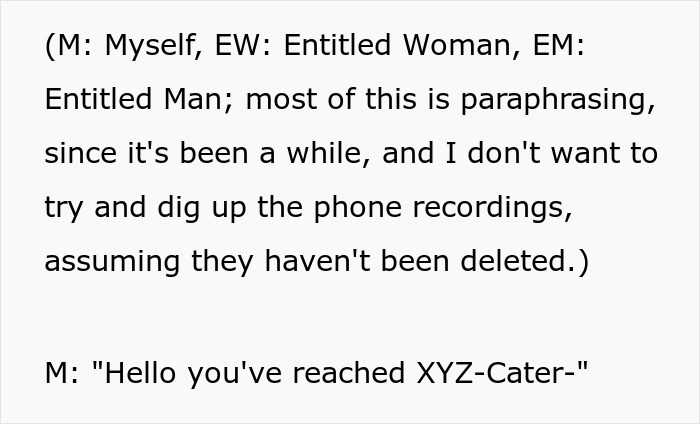

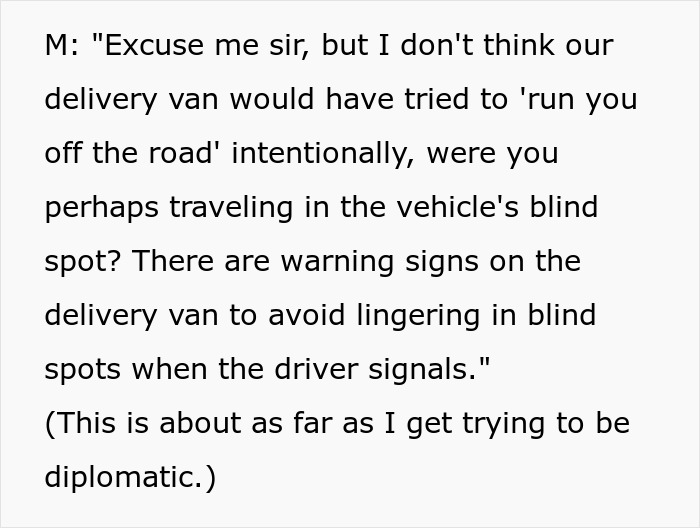

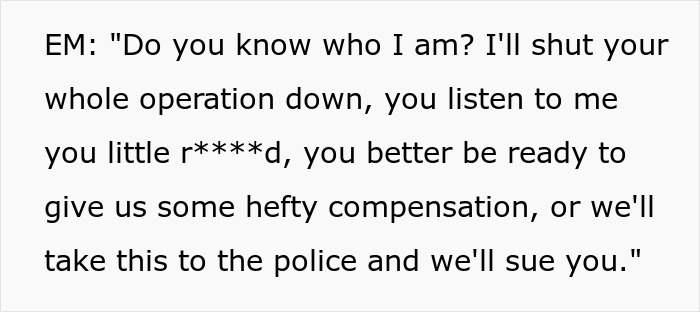
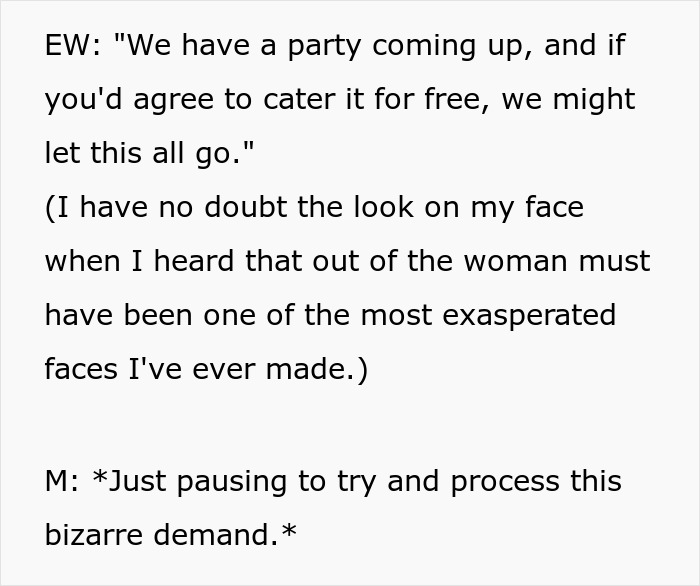


Image credits: Kaboompics.com / pexels (not the actual photo)


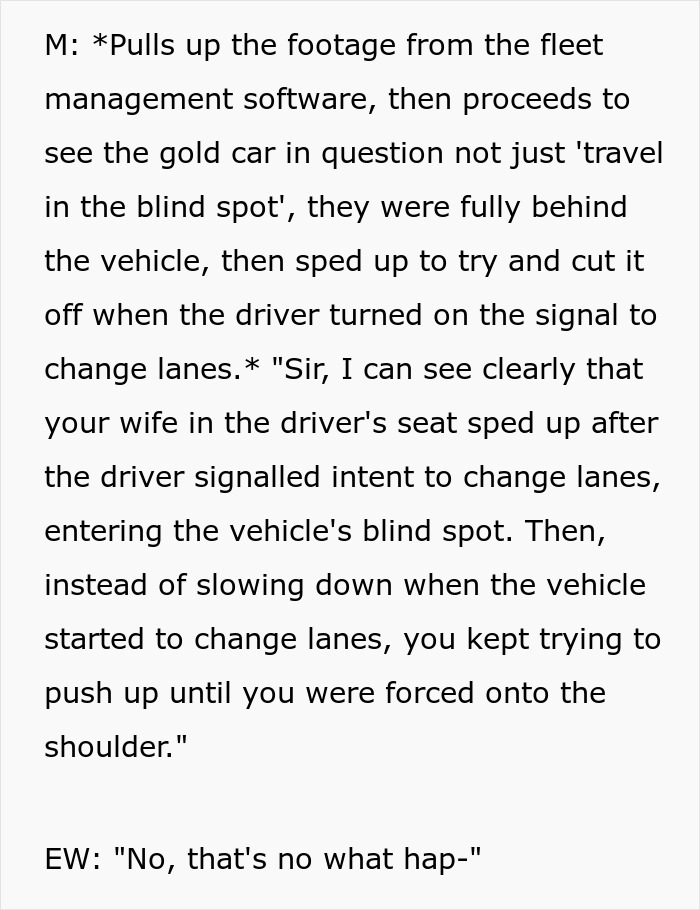

Image credits: Kauske
60% of people can’t have a 10-minute conversation without lying

Image credits: Anastasiya Gepp / pexels (not the actual photo)
According to a University of Massachusetts study, 60% of people can’t have a 10-minute conversation without lying. Considering this, it’s no surprise that customers are dishonest to customer service employees too.
Clients may resort to deception for many reasons. One that associate professor of marketing Deidre Popovich, PhD, provides is wanting to get back at companies that they feel are taking advantage of the average consumer and prioritizing profits. “Consumers may lie when they feel the company “owes them” or they rationalize that their lie won’t really hurt the company financially,” she says.
Psychotherapist turned customer researcher Hannah Shamji, proposes that another big one is the desire to look good or be liked. “This is called social desirability bias—when people say things that sound nice or that they think others want to hear. So, they might give a company positive feedback even if it’s not honest. They might also lie to avoid conflict or awkwardness in the conversation. If they think their opinion will be upsetting or introduce friction, they’ll give quick, safe answers instead. These “white lies” are usually unconscious and well-intentioned but center around wanting to keep things smooth and agreeable,” she explains.
Consumer psychology researcher and chief behavioral officer at Clicksuasion Labs, Dr. Michael Barbera, agrees that most consumers don’t have any intentions to deceive businesses. “Often, what appears to be dishonesty can be more accurately seen as miscommunication or a misunderstanding of policies. However, there are some individuals who do engage in dishonest practices intentionally, aiming to gain personal benefits such as refunds or discounts. By recognizing the difference between these two behaviors, businesses can address genuine miscommunication while also identifying bad actors.”
Lying customers can have a negative impact on a company’s bottom line, says Popovich. “Consumers may make false complaints with the hopes of getting financially compensated, they may return products frequently, or they may falsely claim they never received a product in order to get a refund. In each of these cases, retailers lose revenue from consumer fraud.”
Such behavior of customers can also affect other fellow consumers who are honest, notes Dr. Barbera. “When customers lie, it can lead businesses to implement more restrictive policies, such as shorter return periods or more stringent refund processes. These policies, while aimed at reducing fraud, can unintentionally impact the experience for honest consumers, adding friction to their shopping journey.”
Expert’s comment on the original poster’s situation

Image credits: Anna Shvets / pexels (not the actual photo)
Even though no one appreciates dishonesty, lying customers should still be approached positively and constructively, say the experts. Shamji comments on the specific case of the original poster by saying, “There’s no perfect way to handle interactions like this, but it sounds like the worker did a great job staying calm.”
“In situations like these, understanding the other’s perspective can help defuse things. The callers clearly felt wronged and thought they were helping by reporting the driver. Disagreeing upfront only made things worse, so hearing them out and showing you understand their viewpoint first might help build trust and make them more receptive to your response,” she advises. “That said, the callers were extremely aggressive and rude. So I’d say it’s perfectly reasonable to escalate this to a superior or give them an ultimatum—dealing with angry people doesn’t mean being a punching bag.”
What workers and businesses can do so clients don’t have to resort to dishonesty is be more trustworthy. This can be done by establishing brand consistency and offering thorough training for employees, says Dr. Barbera.
“When employees consistently communicate and apply policies in a fair and transparent manner, it reduces any incentive for customers to stretch the truth. Training that emphasizes empathy, clarity, and consistency enables employees to foster genuine relationships, making customers more inclined to act honestly and openly.”
Meanwhile, Popovich highlights the importance of providing customers with accurate information. “Employees need to ensure that consumers can purchase the correct product so the company does not lose potential sales. Listening to consumer needs and making them feel valued will help establish trust and honesty between both parties. Providing outstanding customer service can often help customers perceive the company as sincere and not opportunistic, making a transaction more likely to be perceived by consumers as honest and transparent.”
She concludes the topic by saying, “The bottom line is that consumers are more likely to lie when they feel they can’t trust the company they are dealing with. So companies must focus on establishing honest relationships with their consumers and consistently train their employees to support this goal. Consumers want to feel valued and respected by the companies they are doing business with. Improving customer service should be a top priority for companies who want to decrease consumer fraud.”
Readers were surprised by the scammers’ lack of technological knowledge




